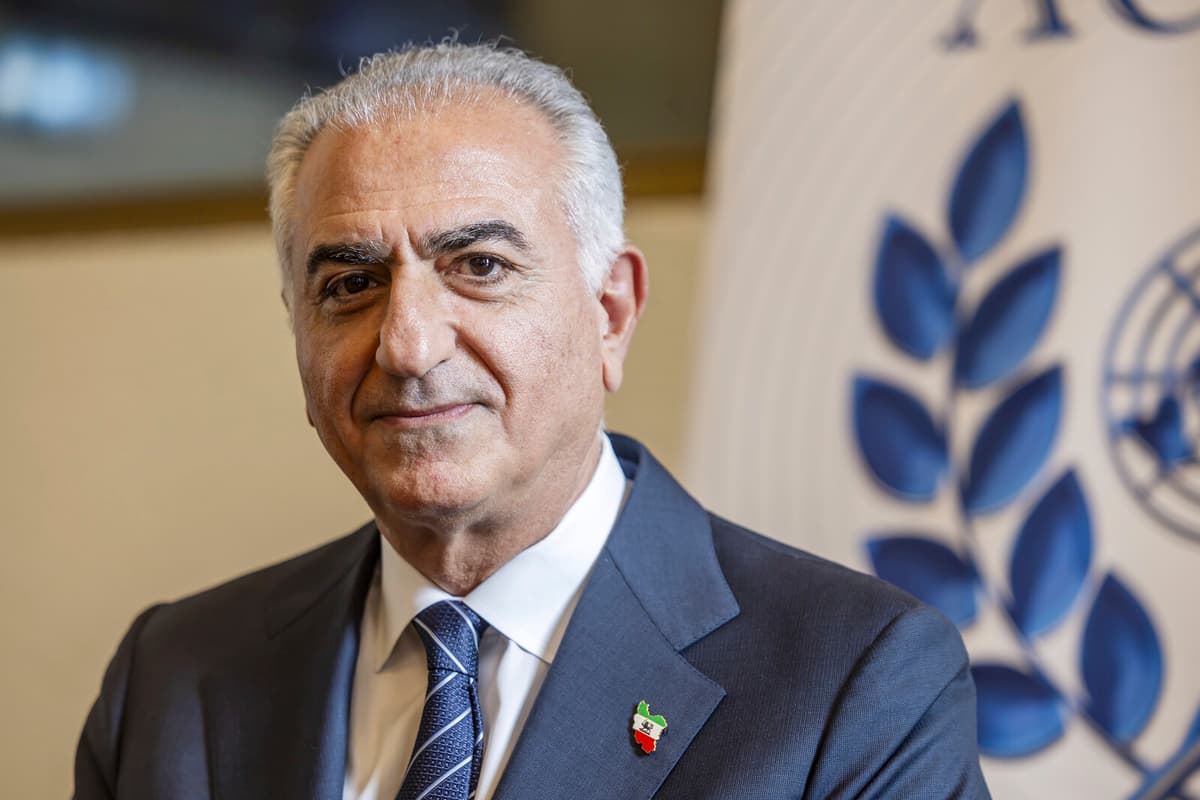My fellow countrymen, says the crown prince from his exile in the USA and looks into the camera.
In a recorded speech published on social media this week, he addresses his millions, mostly Iranian, followers.
The regime's apparatus of oppression is beginning to fall apart. All that is required now is a nationwide uprising to put an end to this nightmare once and for all, he continues.
Oppression and corruption
He says that "we" – without going into detail about who they consist of – are prepared for the first hundred days after the regime's fall and for a transition period.
When the Islamic Republic was founded in 1979, it was after the then 17-year-old Reza Pahlavi's father, Shah Mohammad Reza Pahlavi, was overthrown by the people.
The monarchy's secret intelligence police Savak had by then imprisoned, tortured, and executed an unknown number of Iranians who opposed the royal family. During the Shah's time, Iran was modernized and the oil country's wealth increased - but very little of it trickled down to the population.
But the oppression and corruption in Iran did not decrease after the Islamic revolution. Today, many Iranians, who have chosen to forget the atrocities during the monarchy, have turned to the Shah's son Reza in the hope that he can save them from the Islamists.
Reza Pahlavi has, during his time in exile, nurtured relations with the USA and Israel, just as his father did when he was in power.
”Soon in Tehran”
Just two years ago, the crown prince visited Israel and in a speech to the Israeli-American organization IAC last autumn, Pahlavi called for "maximum pressure" on the regime in Tehran.
This requires leadership in the USA, in Israel, and an Iranian partner. Ladies and gentlemen, I am here to offer that partnership, he said then.
On Friday, just a few hours after Israel launched its attacks on Iran, Israel's Minister for Diaspora Affairs Amichai Chikli published a picture of himself and the crown prince on X along with the text "soon in Tehran".
Our discussions about an Iran after the Islamic Republic have begun, says Reza Pahlavi in a recorded speech on Thursday evening.
Pahlavi's hopeful statements about Israel's attacks on Iran have, however, sparked criticism from those who are more critical of the royal family and do not think it is fitting to praise a war that has killed hundreds of civilians in just a few days.
Sophie Tanha/TT
Fact: Came to power with the help of the West
TT
Reza Shah Pahlavi came to power in then-Persia (the country changed its name to Iran in 1935) with the help of the United Kingdom in 1921. Russia and the United Kingdom, however, forced the Shah into exile after 20 years in power, because he was considered to be too close to Germany during World War II. His son Mohammad Reza Pahlavi took over.
In 1953, the monarchy was threatened by the democratically elected Prime Minister Mohammad Mosaddeq, who was very close to nationalizing large parts of Iran's assets. The Shah tried to dismiss Mosaddeq, which caused large protests and led to Mohammad Reza Pahlavi leaving Iran.
A few days later, the United Kingdom, which benefited greatly from an oil agreement with Iran, and the USA staged a coup against the Mosaddeq government. The Prime Minister was sentenced for high treason, and the Pahlavi family was reinstalled as leaders of Iran.
In 1979, the Iranian population demonstrated again against the monarchy. Mohammad Reza Pahlavi was overthrown. After an internal power struggle, Ayatollah Ruhollah Khomeini took power and made the country an Islamic republic.
Sources: Britannica, NE






